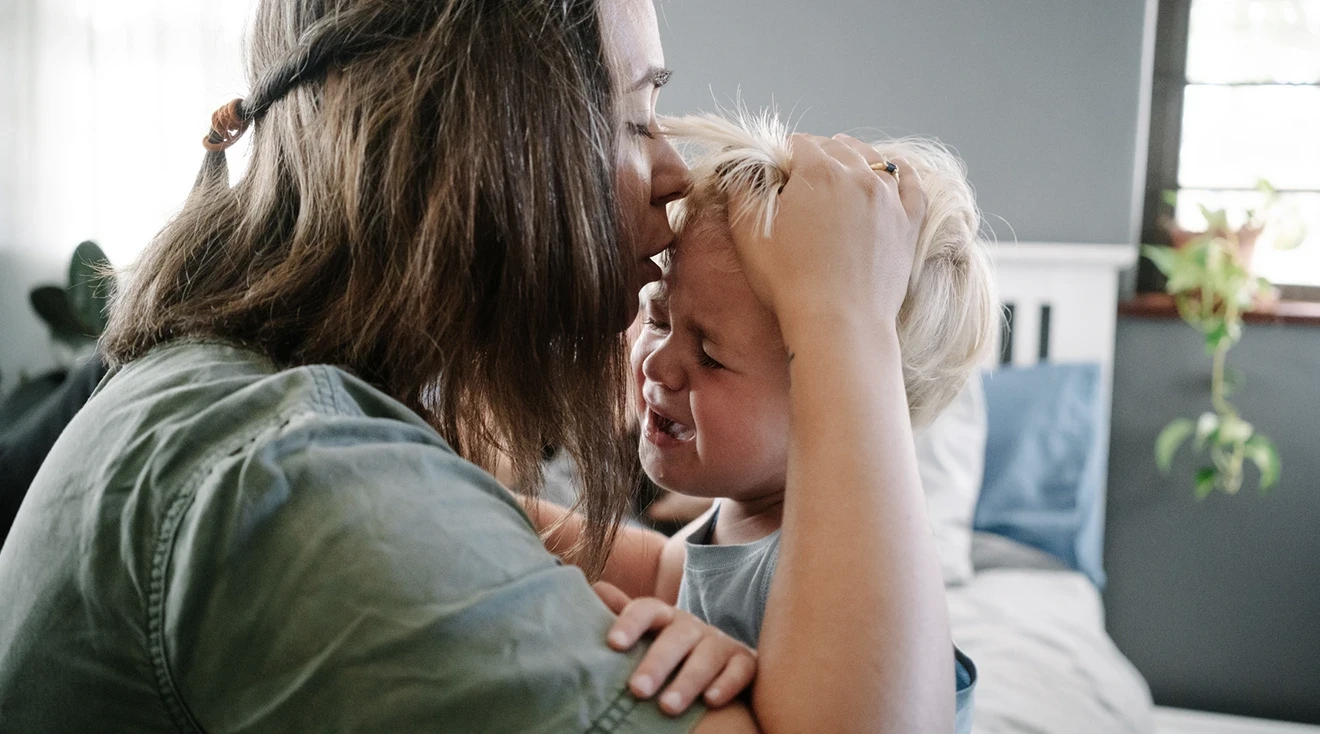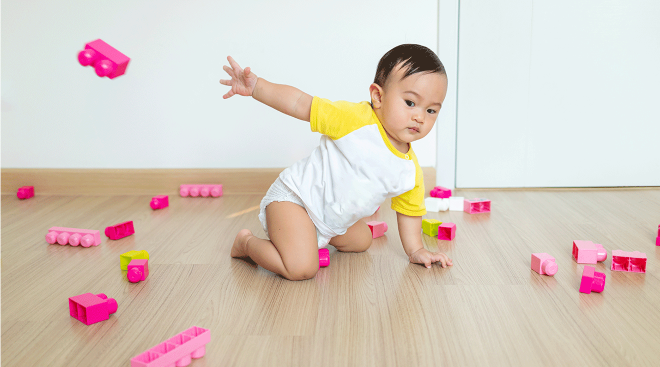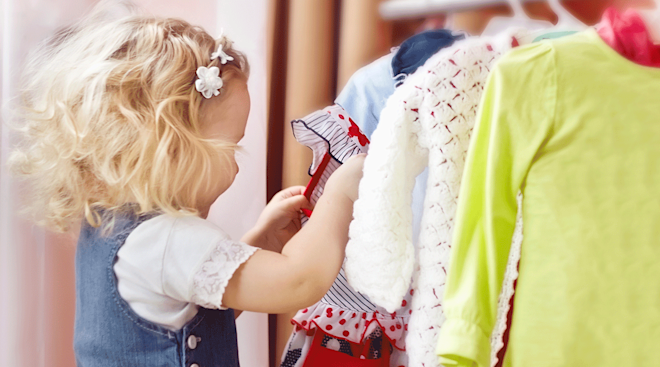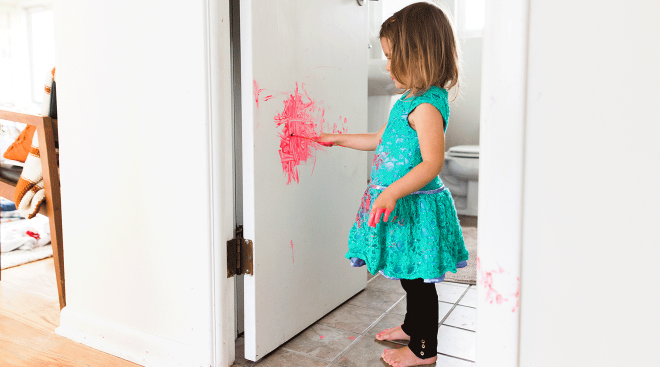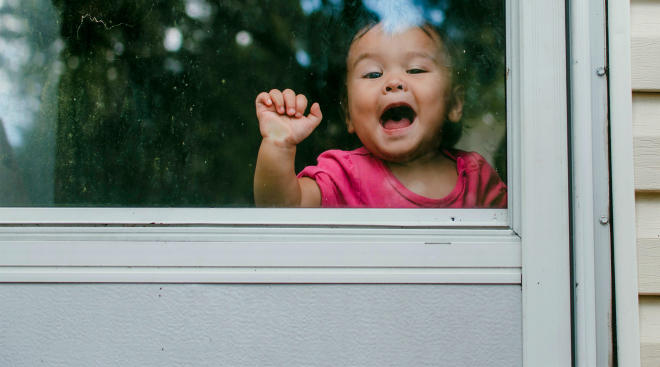Toddler Tantrums: Why They Happen and How to Cope
You’re in the middle of the grocery store when your 3-year-old throws themselves on the floor and starts screaming at the top of their lungs. Cue the stares of other shoppers while your heart races and you struggle to figure out what to do. Toddler tantrums are par for the course, but there are steps you can take to reduce the occurrence and intensity of these fits. Read on for expert tips on how to handle this normal—but incredibly taxing—part of the child-rearing process.
A temper tantrum is an age-appropriate outburst of frustration, anger or sadness, explains Mary Ann Little, PhD., a clinical psychologist and adjunct professor at the University of Texas Southwestern Medical Center at Dallas. They’re incredibly common—nearly all children under the age of 5 will experience them from time to time, says Emily Mudd, PhD, a pediatric psychologist at the Center for Pediatric Behavioral Health, Cleveland Clinic. Preschool-age children lack the skills to manage their emotions and verbalize their feelings, and so they act out, adds Little.
There’s no typical temper tantrum—they come in all shapes and sizes, explains Mudd. To identify them, look for dysregulated behavior that seems out of normal for your child. With the youngest children, expect more extreme signs, like throwing themselves on the floor, screaming, throwing objects, kicking or running away. Later, they might bang on the table or stomp their feet, says Little. Eventually, they’ll express negative thoughts, which will segue from crude phrases (“I hate you”) to more acceptable phrases (“I’m really mad at you”) to statements with explanations (“I’m mad at you because you won’t let me buy that jacket”).
They can begin with kids as young as 18 months. Generally, they start when children become mobile but haven’t yet developed sufficient language and emotional skills, says Mudd. Typically, kids have these so-called temper tantrums through the age of 5 (give or take).
In the meantime, there’s good news: Most toddler tantrums last no more than 10 minutes, says Michelle Tangeman, LMFT, BCBA, a licensed therapist and behavior analyst behind the online education company, Thriving Toddler. And, as kids grow and develop, they tend to act out less. In other words: this phase will pass.
Anytime a toddler feels sad, angry or frustrated, they may throw a tantrum. Here are some common stimuli:
- Physical causes. Fatigue, hunger, illness and overstimulation may individually or collectively lead to a temper tantrum. Toddlers are very sensitive to changes in routine, and any of these things can lead to dysregulation, explains Mudd.
- Not getting what they want. Life is frustrating for a toddler. Little says that if they can’t reach the toy they want, get the piece of birthday cake with the frosting rose or receive a hug from you when they want it, they might have a meltdown moment.
- Desire for control and independence. Your toddler might throw a temper tantrum to assert their independence when you ask something of them or assert your authority, says Little.
We’ve all been there. Dealing with toddler tantrums can be stressful. But knowing what to expect (and what to do) can help reduce your anxiety and frustration. First things first: Develop a plan for handling outbursts, coaches Tangeman. That could mean taking your toddler outside if you’re in a restaurant or repeating a mantra to help yourself relax. Mudd suggests saying, “My child is not giving me a hard time, they’re having a hard time.” Remind yourself that they aren’t trying to be difficult, she adds. Above all else, try to remain calm. “An upset adult can’t regulate an upset child,” says Mudd. Keeping your cool allows you to model appropriate behavior for your child, which helps them build their frustration tolerance and express their feelings verbally.
- Express empathy without giving in. While you should resist the temptation to give in to your toddler’s demands, you can and should acknowledge and validate their feelings. Next, distract them: Ask if they’d like to go outside to play or to visit the neighbor’s puppy. Better yet, offer them a choice, recommends Mudd. This gives them the opportunity to exercise some autonomy.
- Keep them safe during an outburst. First and foremost, make sure your toddler is in a safe environment free of hard objects, suggests Little. Instead of a tile floor, transfer them to a soft rug. If they’re throwing metal spoons, offer them small squishy toys.
- Teach them to substitute more acceptable behavior. Instead of throwing or hitting, prompt them to ball their hands in fists and squeeze tightly, suggests Tangeman. “Think about how you want to behave when you’re angry, then modify and teach that to your toddler,” she adds.
You might want to have a fit in response to your child’s temper tantrum, but that’s not helping anyone. Deep breath—you’re going to have to pull it together and be the grown-up. Here, some things to actively avoid during toddler tantrums:
- Worrying. Since these outbursts are normal and age-appropriate, they don’t signify that anything is wrong with your child or your parenting, reassures Little. Try to avoid catastrophic thoughts; your child doesn’t automatically have emotional problems, and you’re not a bad parent.
- Losing your temper, scolding, or punishing. “You don’t want to punish a child for a skill they don’t have,” says Little, nor do you want to hurt their self-esteem. Plus, you don’t want to model behavior you wouldn’t want them to practice, reminds Tangeman. If you scream and throw things, they’ll learn to do the same when they feel negative emotions.
- Ignoring your child. Sending your child away could teach them to hide rather than express their big emotions, says Mudd. This could result in them feeling deficient or internalizing their emotions more, which could eventually increase their risks for depression and anxiety, she adds.
- Reasoning with your toddler. “Young children’s demands can’t be satisfied by reason,” explains Little. “Many parents think they can talk their toddler out of their feelings, but they can’t because their children don’t have the cognitive skills. Tantrums are often unrelenting. Toddlers want what they want when they want, and you can’t talk them out of it.”
- Giving in to tantrums. The more you reward toddler tantrums (say, with a cookie), the more likely your child will draw out and repeat the behavior, says Tangeman. Instead, prompt them to communicate in more productive ways, like by asking for a hug. “You want to show them you’ll honor their functional request over a flat-out tantrum,” she adds.
- Being impatient. Focus on the big picture. Learning to control strong feelings takes time. “Progress is made steadily over the years and mastery emerges hopefully on the horizon,” says Little. “A difficult toddler will eventually grow beyond their strong feelings into a mature young adult. Patience is your friend and knowledge of the long game is reassuring, especially in the heat of a temper tantrum.”
Many toddler tantrums can’t be prevented and must be endured, explains Little. That said, you can take some actions to reduce outbursts.
- Fulfill their needs. If they’re tired, avoid taking them on a shopping trip. If you suspect they might get hungry, bring along a snack. If they’re active, give them time to run around before bedtime. You want to mitigate issues before they arise.
- Spend time with them. “We know one of the things that can help reduce tantrums is one-on-one caregiver attention time, even just five minutes a day,” says Mudd. Put down your phone and offer them your undivided attention.
- Distract your child. If you sense your toddler is about to explode, try to re-direct their attention.
- Praise positive behavior. To help build your child’s confidence, aim to compliment their positive behavior rather than criticize what they’re doing wrong.
- Offer them control. “Kids want control, so give them choices over the little things,” suggests Little. Let them decide whether they’d prefer to read the blue book or the red book.
- Teach them to manage emotions. When your toddler is calm, show them ways to cope with their feelings, like with deep breathing, suggests Tangeman.
Toddler tantrums aren’t fun for anyone, but they are, nevertheless, important. So the next time your little one melts down in public, remember what Mudd says: “They’re a building block for social, emotional and cognitive development, and an opportunity to model for your children how big feelings should be managed.”
Please note: The Bump and the materials and information it contains are not intended to, and do not constitute, medical or other health advice or diagnosis and should not be used as such. You should always consult with a qualified physician or health professional about your specific circumstances.
Plus, more from The Bump:
Mary Ann Little, PhD, is a clinical psychologist and adjunct professor at the University of Texas Southwestern Medical Center at Dallas, and author of the forthcoming book Childhood Narcissism: Strategies to Raise Unselfish, Unentitled, and Empathetic Children.
Emily Mudd, PhD, is a pediatric psychologist at the Center for Pediatric Behavioral Health at the Cleveland Clinic in Ohio.
**[Michelle Tangeman](https://michelletangeman.com/,** LMFT, BCBA, is the licensed marriage and family therapist and board certified behavior analyst behind the online education company Thriving Toddler.
Learn how we ensure the accuracy of our content through our editorial and medical review process.
Navigate forward to interact with the calendar and select a date. Press the question mark key to get the keyboard shortcuts for changing dates.
































